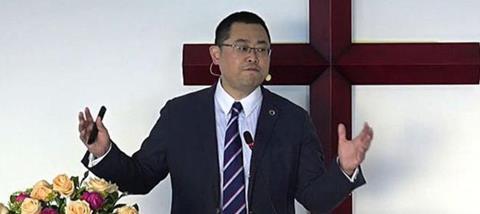A new paper published by Pew Research could be music to the Chinese government’s ears. On the face of it, it seems to suggest that church growth in China is slowing. But that may not be the whole truth, says Andrew Boyd

A new paper by the respected Pew Research Centre says only one in ten Chinese adults now formally identifies with any religion. Could this signify that the phenomenal growth of Christianity in China is finally be petering out?
A decline in church growth is exactly what China is hoping for. Since the beginning of September, new measures have come into play cracking down on religious activities by Christians, Muslims, Buddhists and others, and preventing the display of religious symbols outdoors.
They are the latest in a long-running programme by the Chinese government of so-called Sinicization, making China more outwardly Chinese.
In practice, this has meant demolishing state-sanctioned churches considered too big for their boots and tearing down more than 1,500 crosses in Zhejiang province alone. Surveillance of Christians has increased dramatically.
China has banned any kind of religious presence on the Internet without an official licence, which includes videos of sermons. And pastors who take up tithes and offerings are being charged with fraud.
The net result will inevitably drive Christians who seek freedom of worship into the hidden, illegal underground churches. And there is no effective way the state can measure those numbers.
Release International, which serves the persecuted church around the world, has partners in China and they are telling us that the Communist Party is playing God and demanding to be worshipped, rather like Nebuchadnezzar in the Old Testament. But is it working?
There are probably more Christians than Communists in China
Pew’s data goes back to 2018 and is drawn from official Chinese sources. Pew acknowledge they were unable to conduct a survey of their own, given government restrictions.
The official estimate of the number of Christians in China is between two and three per cent. According to Pew: “Some media reports and academic papers have suggested the Christian share may be larger, with estimates as high as seven per cent (100 million) or nine per cent (130 million) of the total population including children.”
Pew acknowledge underground Christians “may be reluctant to reveal their identity. Likewise, members of the Chinese Communist Party, who are prohibited from holding a religious affiliation, might not disclose [that].”
The official numbers of Protestant churches have plateaued at around 60,000. Hardly surprising when churches are being pulled down and stripped of religious symbols and when their ministers are appointed by the state and required to pledge their allegiance to the officially atheist Communist Party.
So given the likelihood of reticence to disclose religious affiliation, along with the figures being out of date and reliant on official sources, it seems premature to suggest with any certainty that the Church has levelled off or may be in decline. Even Pew says that when you look at the figures “cumulatively”, as many as 8 per cent of Chinese adults have some degree of connection to Christianity.
That would represent a substantial number of Chinese citizens. According to US-based Asia Harvest, whose 2020 estimate was also 8 per cent, it would mean 109.7 million Protestant Christians of all ages in China.
That’s a stark contrast to official Chinese government figures, which say the number of Protestants in China grew from 700,000 in 1949 to 38 million in 2018.
It would also make an embarrassing contrast with the membership of the Communist Party in China, put at 98 million in 2020.
So, which figure can we rely on? 38 million or 109 million? The true figure is likely to be somewhere in between, but remember, that’s for Protestants only, which means it’s still fair to say there are probably more Christians than communists in China.
What we can state for certain, is that the lesson of history teaches us that persecution can never stamp out the Church. Pressure and oppression will only drive people closer to God. In the case of China, via the state-controlled churches, or the burgeoning underground Church.


































